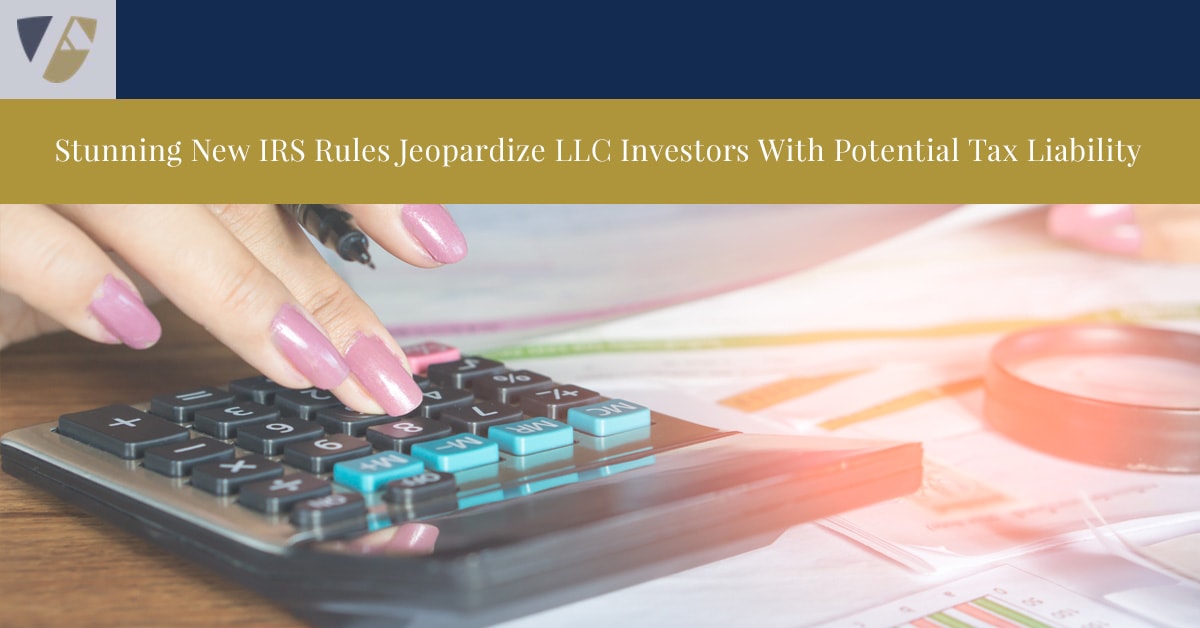Congress just passed technical corrections to the new IRS partnership audit and collection rules, and the result is nothing short of shocking.
Basic corporate/LLC law has traditionally provided that an equity investor only risks his or her investment in a company, and is generally not personally liable for company debts. This invites investment and capital formation inasmuch as investors risk only their investment dollars, not personal assets. Under the new partnership audit and collection rules, an entity taxed as a partnership (say, an LLC) may be liable for taxes, penalties and interest if income is underreported or expenses overstated, etc. on the partnership tax return. That means a new investor may lose part or all of his or her investment to taxes if, say, the company does not properly report and allocate income and expenses on its IRS 1065 tax return for a prior tax year.
Fair enough under well-established law. But under recently enacted technical corrections to the tax code (new IRC 6232(f), precisely), the potential loss to the new investor does not stop with his or her investment. If the LLC fails to pay the tax owed in full, the IRS maypersonally assess the new investor for his or her share of the shortfall, based upon his or her distributive share of LLC profits, etc., even though the investor was not a member for the reviewed year in question and not otherwise liable for the taxes for that year. Moreover, the investor does not have ordinary appeal rights to file a petition in US Tax Court or other court, as with other IRS assessments. In summary, an investor may be saddled with someone else’s tax bill, and have no due process rights to contest the matter in court. No doubt, this is a stunning reversal of hundreds of years of corporate and tax law and presents a new (and substantial) potential liability risk to investors.
Fortunately, there may be some solutions available. Let AEGIS Law help you find the answers. For more information, contact your AEGIS Law attorney, or Norman S. Newmark, JD, LLM, head of the firm’s tax department, at 314.454.9100 x117 or [email protected].
 Norman Newmark’s practice is focused on tax, estate planning and corporate matters, and he serves as the head of the firm’s tax department. He has an extensive transactional practice involving sophisticated trusts, business entity formation, mergers and acquisitions, buy-sell agreements, and other recognized planning for individuals, health care practices, businesses and non-profit entities. Norman handles probate matters ranging from ordinary estate administration to trust litigation. He has represented individuals and businesses before the Internal Revenue Service and the tax departments of various states. As part of a bar subcommittee, Norman drafted key provisions of the Missouri Uniform Powers of Appointment Act recently passed by the Missouri General Assembly and signed into law by the governor.
Norman Newmark’s practice is focused on tax, estate planning and corporate matters, and he serves as the head of the firm’s tax department. He has an extensive transactional practice involving sophisticated trusts, business entity formation, mergers and acquisitions, buy-sell agreements, and other recognized planning for individuals, health care practices, businesses and non-profit entities. Norman handles probate matters ranging from ordinary estate administration to trust litigation. He has represented individuals and businesses before the Internal Revenue Service and the tax departments of various states. As part of a bar subcommittee, Norman drafted key provisions of the Missouri Uniform Powers of Appointment Act recently passed by the Missouri General Assembly and signed into law by the governor.




